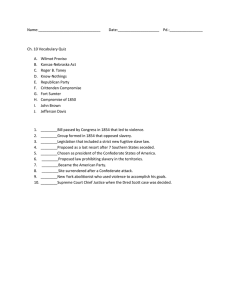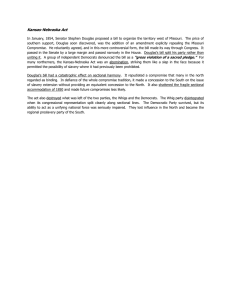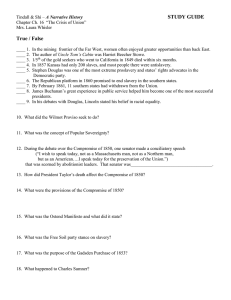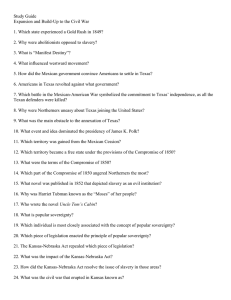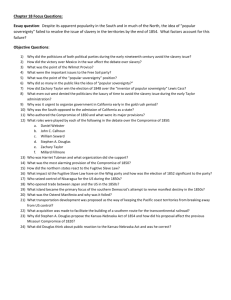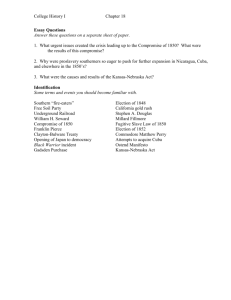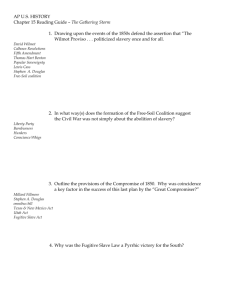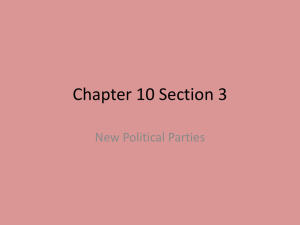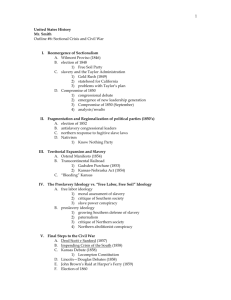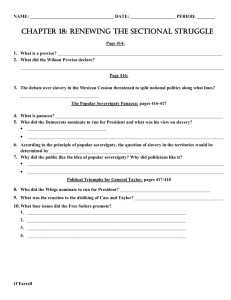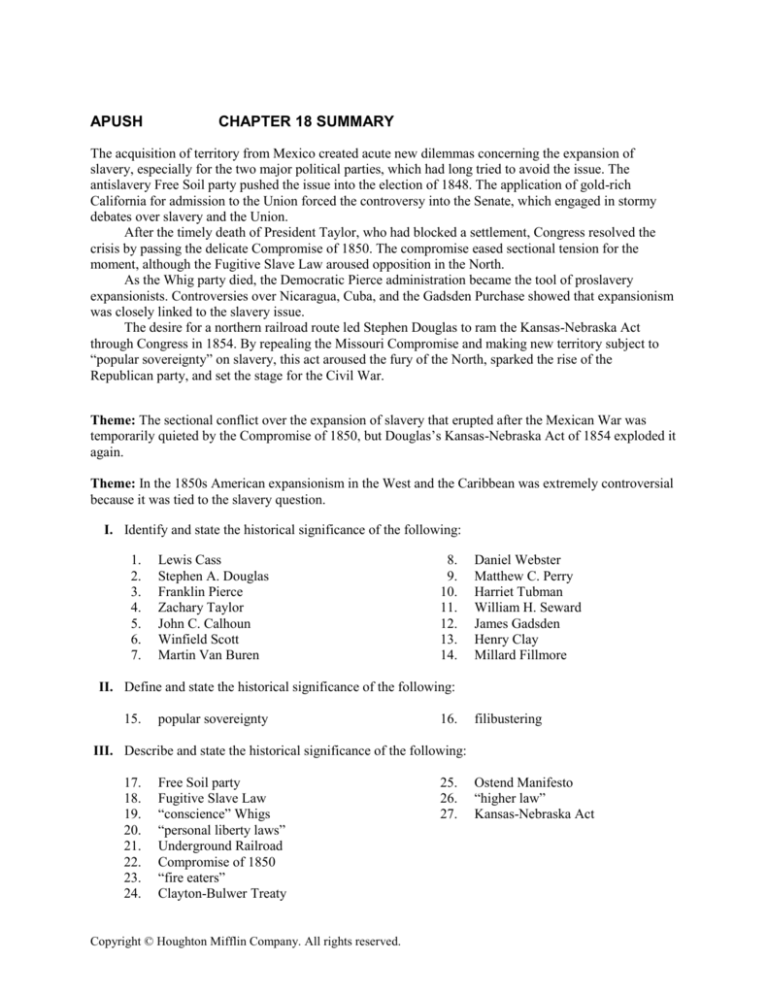
APUSH
CHAPTER 18 SUMMARY
The acquisition of territory from Mexico created acute new dilemmas concerning the expansion of
slavery, especially for the two major political parties, which had long tried to avoid the issue. The
antislavery Free Soil party pushed the issue into the election of 1848. The application of gold-rich
California for admission to the Union forced the controversy into the Senate, which engaged in stormy
debates over slavery and the Union.
After the timely death of President Taylor, who had blocked a settlement, Congress resolved the
crisis by passing the delicate Compromise of 1850. The compromise eased sectional tension for the
moment, although the Fugitive Slave Law aroused opposition in the North.
As the Whig party died, the Democratic Pierce administration became the tool of proslavery
expansionists. Controversies over Nicaragua, Cuba, and the Gadsden Purchase showed that expansionism
was closely linked to the slavery issue.
The desire for a northern railroad route led Stephen Douglas to ram the Kansas-Nebraska Act
through Congress in 1854. By repealing the Missouri Compromise and making new territory subject to
“popular sovereignty” on slavery, this act aroused the fury of the North, sparked the rise of the
Republican party, and set the stage for the Civil War.
Theme: The sectional conflict over the expansion of slavery that erupted after the Mexican War was
temporarily quieted by the Compromise of 1850, but Douglas’s Kansas-Nebraska Act of 1854 exploded it
again.
Theme: In the 1850s American expansionism in the West and the Caribbean was extremely controversial
because it was tied to the slavery question.
I. Identify and state the historical significance of the following:
1.
2.
3.
4.
5.
6.
7.
Lewis Cass
Stephen A. Douglas
Franklin Pierce
Zachary Taylor
John C. Calhoun
Winfield Scott
Martin Van Buren
8.
9.
10.
11.
12.
13.
14.
Daniel Webster
Matthew C. Perry
Harriet Tubman
William H. Seward
James Gadsden
Henry Clay
Millard Fillmore
II. Define and state the historical significance of the following:
15.
popular sovereignty
16.
filibustering
III. Describe and state the historical significance of the following:
17.
18.
19.
20.
21.
22.
23.
24.
Free Soil party
Fugitive Slave Law
“conscience” Whigs
“personal liberty laws”
Underground Railroad
Compromise of 1850
“fire eaters”
Clayton-Bulwer Treaty
Copyright © Houghton Mifflin Company. All rights reserved.
25.
26.
27.
Ostend Manifesto
“higher law”
Kansas-Nebraska Act
Chapter 18 Renewing the Sectional Struggle, 1848–1854
Copyright © Houghton Mifflin Company. All rights reserved.

